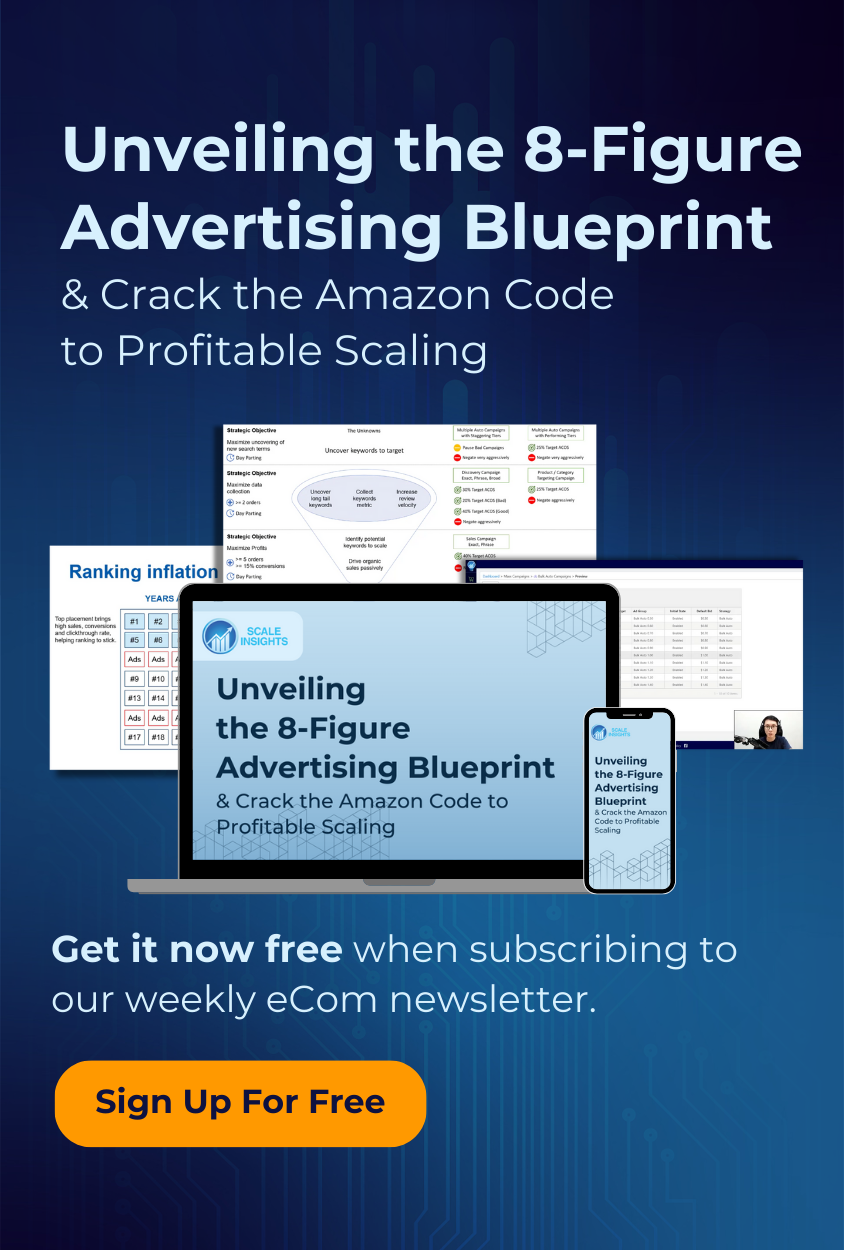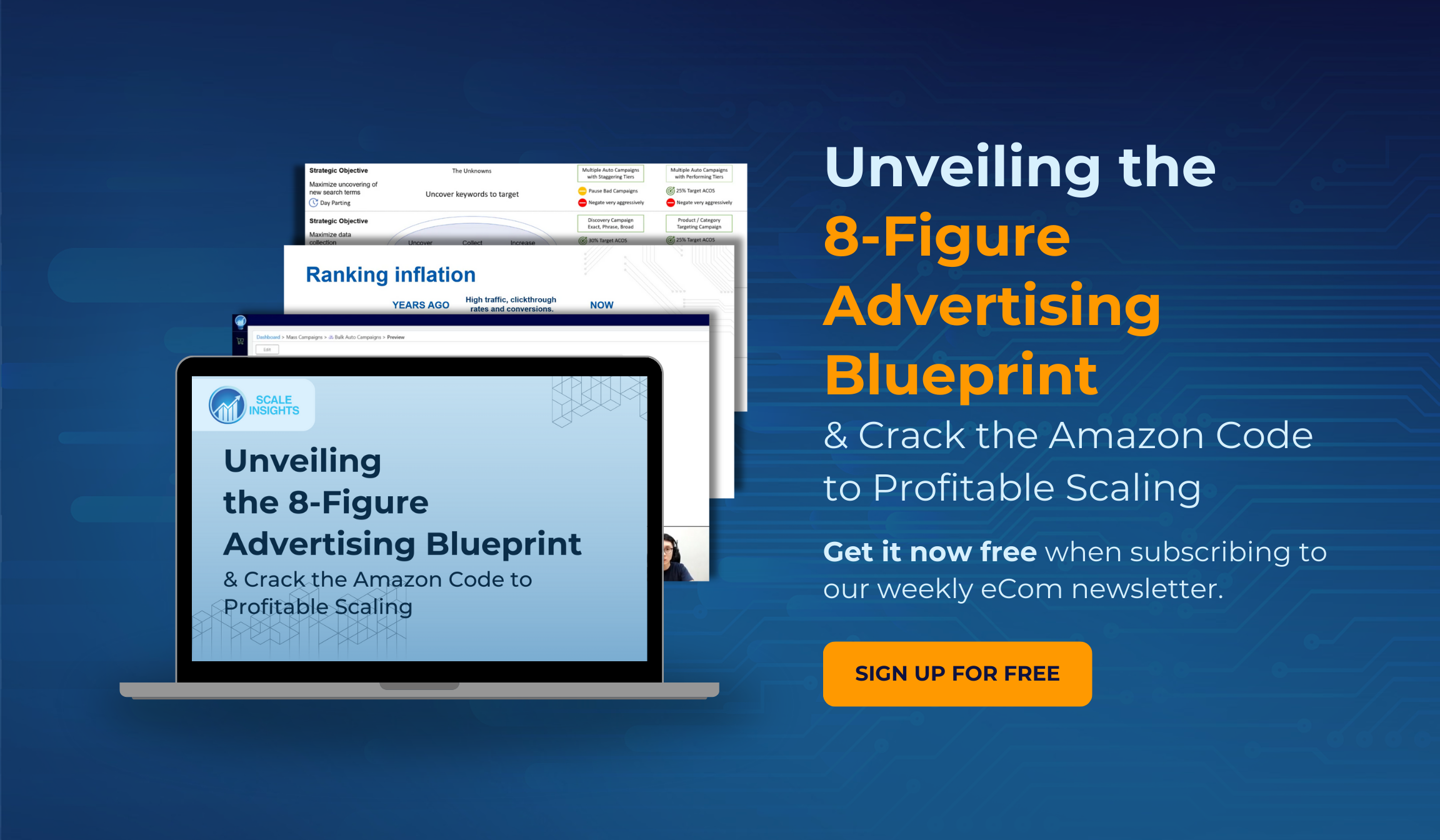Is Amazon PPC worth it? This question frequently arises among sellers looking to make a splash in the world's largest e-commerce marketplace. With competition at an all-time high, standing out from the crowd can be a daunting challenge.
We'll dive into the world of Amazon PPC, exploring its potential benefits and drawbacks to help you determine if this powerful advertising tool is the right fit for your business.
1. Exploring The Pros And Cons
Whether you're a new seller or already have years of experience, whether it is worth it will pop up now and then.
While Amazon PPC can be worth it for sellers willing to invest the time and effort into creating and optimising their PPC campaigns, it comes with some very important considerations.
However, it is not guaranteed success, and sellers should carefully consider their goals, budget, and competition before diving in.
The efficiency of Amazon PPC may differ based on several factors, including the nature of the item, audience targeting, bid tactics, and ad content. Sellers need to track their metrics and adjust their campaigns to ensure they get the most out of their investment. Ultimately, whether or not Amazon PPC is worth it will depend on the individual seller's goals and resources.
2. Is Amazon PPC Really Worth It?: Advantages Of Amazon PPC
Increased Visibility
An important benefit of Amazon PPC is that it enhances the visibility of your products. With millions of products on Amazon, it can take time for your product to stand out. Amazon PPC allows you to bid on keywords relevant to your products and have them appear at the top of search results, increasing your product's visibility and exposure to potential customers.
This greater exposure has the potential to result in higher click rates, which can ultimately convert into greater sales. Additionally, Amazon PPC offers various targeting options, allowing you to reach specific audiences, such as customers who have already viewed or purchased your products or are searching for similar products.
Targeted Advertising
A common question that echoes through the minds of many sellers considering investing in Amazon's advertising platform – are Amazon Sponsored Ads worth it?
Sponsored Ads can significantly amplify a product's visibility, potentially increasing sales by reaching customers precisely when they're ready to buy.
However, the true worth comes from strategic keyword targeting, continuous optimization, and understanding how to measure your return on investment against your ad spend.
Amazon PPC can target specific audiences with great precision. Amazon offers a range of targeting options, such as product targeting, category targeting, and keyword targeting, allowing sellers to reach their desired audience effectively.
For instance, product targeting enables sellers to display their ads on product pages related to their products. This helps ensure that the right people see the ads, increasing the chances of conversion.
Category targeting, on the other hand, allows sellers to show their ads to shoppers browsing through specific categories relevant to their products. This type of targeting can be effective for sellers who want to increase visibility and sales in a particular category.
Lastly, keyword targeting enables sellers to show their ads to shoppers searching for specific keywords related to their products. This helps ensure that ads are shown to people actively looking for similar products, increasing the chances of conversion.
Cost-Effective
Amazon PPC also has the advantage of being cost-effective for sellers. With Amazon PPC, sellers only pay for clicks on their ads, which means they are not charged for impressions that do not result in clicks.
For sellers with a restricted budget, this approach can be particularly advantageous as they can manage their expenses by setting a daily budget and bidding for their advertisements. Moreover, Amazon provides sellers with tools and information to fine-tune their Amazon PPC campaigns and ensure they maximize their advertising investment.
By carefully managing their campaigns and targeting the right audience, sellers can see a positive return on investment (ROI) from their Amazon PPC ads. Check this article to know more about Amazon PPC costs.
Measurable Results
With Amazon's robust reporting system, sellers can easily track their ad performance and measure their return on investment (ROI). This level of data and analytics is only sometimes available with traditional advertising methods, making Amazon PPC an attractive option for sellers who want to make data-driven decisions.
Amazon provides detailed metrics like impressions, clicks, click-through rate (CTR), conversion rate, and total sales, which can be used to evaluate the effectiveness of a PPC campaign. This data can then be used to adjust bids, refine targeting options, and optimise ad copy to improve performance and increase ROI.
Boost In Sales
Boost in sales is one of the primary and desired advantages of using Amazon PPC. By advertising on Amazon, sellers can reach a wider audience, including those who may have yet to discover their products. This increased visibility often translates to higher sales, which is the ultimate goal for most sellers on the platform.
Additionally, Amazon's algorithm considers sales velocity when determining search ranking, so increased sales through PPC can also lead to organic ranking improvements. With careful monitoring and optimisation of an Amazon PPC campaign, sellers can see a significant boost in their sales and revenue through Amazon PPC.
3. Advertising On Amazon Vs Google
Advertising on Google and Amazon are two strategies businesses can use to reach their target audience.
Google advertising, also known as Google Ads, allows businesses to display their ads on Google search results pages and other websites within the Google Display Network. These ads can be targeted based on keywords, location, demographics, and other factors.
On the other hand, Amazon advertising allows businesses to display their ads on Amazon.com and other Amazon-owned properties. These ads can be targeted based on keywords, product categories, customer behaviour, and other factors.
-
Targeted audience: Amazon has a specific audience - people already shopping on the platform. This means that your ads are being shown to people who are more likely to be interested in your product as they are actively looking to buy. On the other hand, Google's audience is more general, as people usually search for information rather than shop.
-
Higher conversion rates: Because Amazon's audience is more targeted, ads on the platform tend to have higher conversion rates. People are more likely to click on an Amazon ad because they are already in the mindset of shopping and looking to make a purchase.
-
Easy set-up: Amazon's ad platform is relatively easy to use, with intuitive interfaces that simplify setting up campaigns and tracking their performance. This makes it a good option for small business owners who may have little experience with digital advertising.
-
Competitive pricing: While the cost of advertising on Amazon can vary depending on the product category and competition, it tends to be more affordable than Google Ads. This makes it a more accessible option for businesses with smaller budgets.
-
Access to customer data: Amazon provides advertisers access to customer data such as search queries, product views, and purchase history. The data can be utilised to enhance campaign performance by targeting ads more effectively.
6. Disadvantages Of Amazon PPC
While there are many benefits to using Amazon PPC, as with anything else, there are also some disadvantages.
-
High competition: Due to the popularity of Amazon as a shopping destination, the competition for ad space can be intense. This means that advertising costs can be high, and making your ads stand out may take time and effort.
-
Limited control: While you have control over your campaign settings and targeting options, some aspects of Amazon PPC are beyond your control. For example, Amazon's algorithm determines which ads are displayed for specific search terms. There is no way to guarantee that your ads will be shown every time.
-
Dependent on Amazon: Since Amazon PPC is only available on Amazon's platform, you are reliant on the company to maintain and improve the service. Any changes to the platform or algorithms could significantly impact your campaign's performance.
-
Fraudulent clicks: As with any PPC platform, there is the potential for fraudulent clicks on your ads. This means that you could pay for clicks that are not genuine, which can be frustrating and expensive.
7. Factors To Consider
Once you have fully weighed the pros and cons when deciding if Amazon PPC is worth it for your business, there are a few more factors to consider.
Budget
Consider the amount of money you're willing to invest in Amazon PPC and whether it aligns with your marketing budget. Remember that there are costs beyond just the ad spend, such as optimising campaigns, creating ad copy, and analysing data.
Competition
Look at your competitors and determine if they are already using Amazon PPC. If so, consider the level of competition and how it may impact your ability to achieve a favorable ROI. Additionally, consider the level of competition within your specific product category or niche.
Target Audience
Evaluate whether or not your target audience is actively searching for products on Amazon. If your audience is active on Amazon, there may be better platforms for your advertising efforts.
Product Type
Some product types may have higher conversion rates on Amazon than others. For example, suppose you're selling a highly commoditized product with many competitors. The competition may drive up the cost per click and make it harder to achieve a favourable ROI.
Advertising Goals
Consider your advertising goals and how Amazon PPC fits your marketing strategy. If your main goal is to increase brand awareness, then there may be more effective channels than Amazon PPC.
Level Of Experience
Consider your experience with Amazon PPC and whether or not you have the knowledge and resources to optimize PPC campaigns effectively. If you're new to Amazon PPC, it may take time to learn the ins and outs of the platform and optimize campaigns for success.
Conclusion: Is Amazon PPC Worth It?
After considering the advantages and disadvantages of Amazon PPC and comparing it to advertising on other platforms, such as Google, it is clear that Amazon PPC offers unique benefits that can be valuable to sellers.
However, it is important to carefully evaluate the factors specific to your business before deciding whether or not to invest in Amazon PPC. If you have a well-defined target audience, competitive products, and a solid PPC advertising strategy, then Amazon PPC can be worth it.
Ultimately, it is a matter of weighing the potential return on investment against the cost of advertising and determining if the benefits align with your business goals.
Take your Amazon PPC campaigns to the next level with Scale Insights! Our Amazon PPC software uses Scale-matic technology to ensure you have complete control over every dollar you put into your campaigns. Read more about Amazon analytics tools.
Try a free 30-day trial (no credit card needed), starting at $78 up to $688 monthly. Customized plans are available for up to 2,000 automated ASINs.
Read more related articles about Amazon PPC Tools: Amazon Seller Analytics Software, How Much is Amazon PPC, and Advanced PPC Strategies.
Frequently Asked Questions: Is Amazon PPC Worth It?
How Does Amazon Differ From Other Advertising Platforms?
Amazon focuses on product-based ads within a large e-commerce ecosystem. This allows advertisers to target high-purchase intent customers. Meanwhile, platforms like Google Ads and Facebook Ads cater to a broader range of advertising objectives.
How Do I Calculate My ROAS For Amazon PPC?
ROAS (Return on Ad Spend) for Amazon PPC (Pay-Per-Click) can be calculated by dividing the revenue generated from the ads by the total cost spent on the ads. It gives you the ratio of your gross revenue to your advertising spend. Thus, if you generate $200 from $50 of ad spend, your ROAS would be 4 ($200/$50), implying you're earning $4 for every $1 spent on ads.
Is Amazon PPC Better Than Traditional Advertising?
Amazon PPC can be more effective for businesses selling on Amazon, as it targets shoppers already looking for products on the platform. Traditional advertising can be more effective for businesses targeting a wider audience outside of Amazon.
Can Amazon PPC Help Me Rank Higher In Search Results?
Amazon PPC can help improve your product's visibility and sales, which can indirectly help improve your search ranking. However, it is not a direct ranking factor, and other factors contribute to your search ranking on Amazon.
Is Amazon PPC Good?
Amazon PPC can be highly effective for increasing visibility and sales for your products on Amazon, especially in a competitive marketplace. It allows sellers to bid on keywords, ensuring their products appear in prominent search positions, thus driving traffic and potential sales.
Is Amazon PPC Necessary?
No. While not strictly necessary, Amazon PPC is a crucial component for most sellers aiming to improve their product visibility and competitiveness on the platform. It's especially beneficial for new products or those in highly competitive categories to gain traction.
What Is A Good Budget For Amazon PPC?
A good budget for Amazon PPC is one that aligns with your business goals, product margins, and competitive landscape, generally starting at least 10% of your desired gross sales. It's best to start with a test budget, analyze performance data, and adjust based on the cost of sale and campaign effectiveness.
How Much Does Amazon PPC Make?
The amount Amazon PPC can make varies widely; it depends on the product, pricing, competition, and the effectiveness of the PPC campaigns. Some sellers see a return of 2-10 times their ad spend, but success depends on optimizing keywords, bids, and understanding the target market.



 Scale Insights Team
Scale Insights Team


